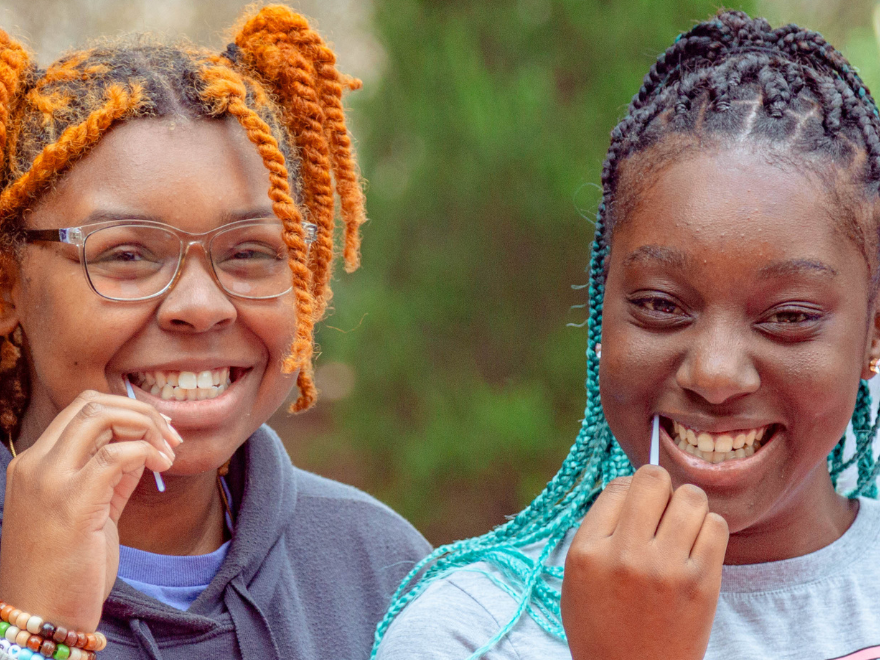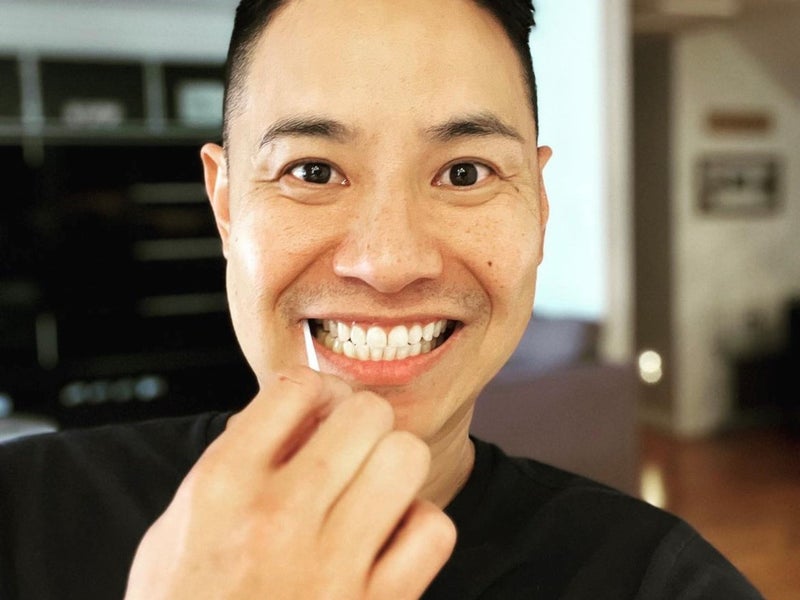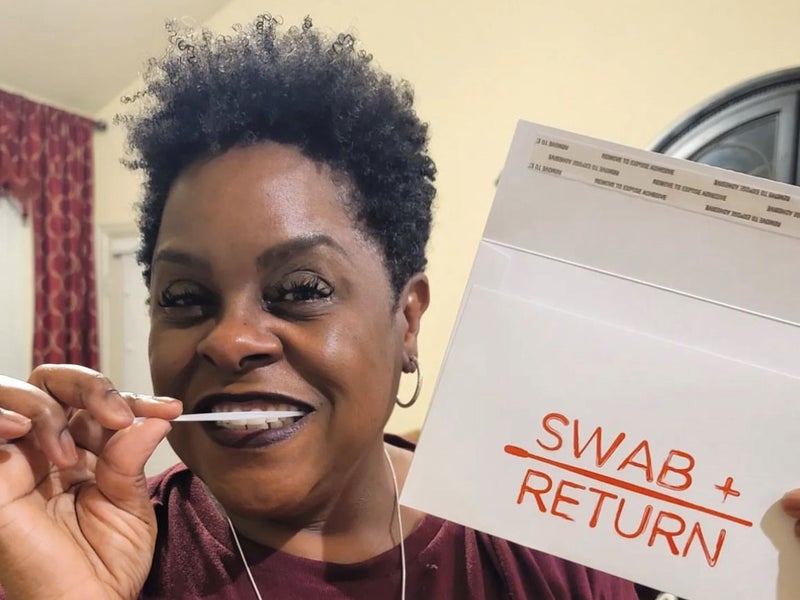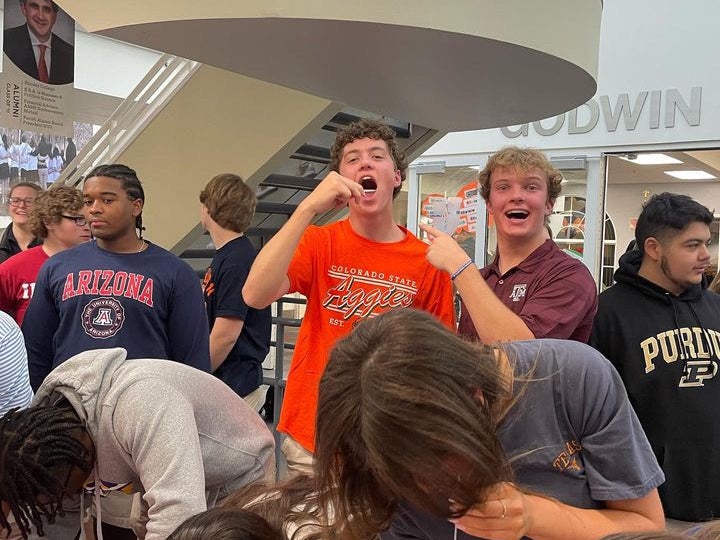
It's Swabtember!
Together we can partner in a way that will mobilize everyday heroes to inspire their communities and provide more second chances at life.
The month of September recognizes the awareness of many medical conditions that could give patients a second chance at life with the support of a stem cell donor - Blood Cancer Awareness Month, Childhood Cancer Awareness Month, Lymphoma Awareness Month, and Sickle Cell Awareness Month. September also marks the beginning of National Hispanic Heritage Month – highlighting the necessity for increasing diversity on the registry.
We celebrate each individual and essential group through Swabtember. Read below for how DKMS, families, and friends can make an impact by growing and diversifying the list of available donors for blood stem cell donation.
Blood Cancer Awareness
Every 3 minutes, someone in the United States is diagnosed with blood cancer.
Our blood flows through blood vessels to supply all tissues in the body with nutrients. In the approximately 5 liters of blood circulating in our body, there are billions of blood cells that carry out various vital functions. All blood cells originate from hematopoietic stem cells. The term "blood cancer" is a general description of various hematopoietic cancers. These include the different types of Leukemia, Lymphoma, Multiple Myeloma, and more.
For many blood cancer patients, a blood stem cell donation from an unrelated donor is their only chance of survival. The blood stem cells are collected from the donor and implanted in the recipient – in a stem cell transplantation. The new, healthy blood stem cells help the recipient’s bone marrow to regenerate and produce healthy blood cells again.
Childhood Cancer Awareness
While childhood cancer is rare, it is the leading cause of disease-related death past infancy in children and adolescents. Every September, DKMS, alongside advocacy organizations, healthcare institutions, patients, and their families come together to raise awareness for childhood cancer.
Lymphoma Awareness
Lymphoma impacts lymphocytes – the white blood cells that defend the body against bacteria and viruses. It starts when a lymphocyte experiences an abnormal change that enables it to live longer or copy itself faster than it should. From there, the cancerous lymphocytes travel throughout the lymphatic system, reaching the lymph nodes, spleen, bone marrow, and other parts of the body.
Lymphoma can be broken into three major categories: chronic lymphocytic leukemia/small lymphocytic lymphoma (CLL/SLL), Hodgkin’s lymphoma (HL), and non-Hodgkin’s lymphoma (NHL). The most common symptom of lymphoma is the painless enlargement of a person’s lymph nodes, which is why everyone should schedule an annual checkup with their primary care doctor, who routinely provides this examination.
Treatment for lymphoma depends on the way it manifests in a patient. Most often, providers will start a patient with a combination of drugs and chemotherapy, and in many cases, these individuals will also require a blood stem cell transplant for a second chance at life.
Sickle Cell Awareness
Sickle cell disease (SCD) is an inherited disorder that impacts patients’ red blood cells and occurs in approximately 1 in every 365 Black American births. Patients with SCD have inherited genes that code for abnormal hemoglobin – resulting in hard and sticky C-shaped red blood cells that die off early, creating a constant scarcity of red blood cells. These cells can also get stuck in patients’ small blood vessels and block blood flow through the body, making individuals with SCD particularly susceptible to pain, infection, acute chest syndrome, and strokes.
The only potential cure for SCD patients is a blood stem cell or bone marrow transplant – which is why the work we do at DKMS is integral to the health outcomes of sickle cell patients not only in the U.S. but across the world.
National Hispanic Heritage
September 15 – October 15
We celebrate National Hispanic Heritage Month from September 15 to October 15. It is a way to recognize and celebrate Hispanic Americans and their influence.
When it comes to blood stem cell donation, ethnicity matters. People of Hispanic descent only have a 46% chance of finding a match due to the lack of diversity on the registry. We hope to register more people of all ethnic backgrounds and hope you’ll consider registering.
How can you help?
Take the quick and easy step to register as a potential donor! It only takes a 3-minute cheek swab to have the opportunity to change someone's life.
Request your FREE swab kit sent directly to you. Anyone between the ages of 18-55 in general good health can register. You will remain on the registry until the age of 61. If you are ever found to be a match for a patient in need, someone on our DKMS team will reach out to you.
Spread the word! Be it TikTok, Twitter, YouTube, Instagram, Facebook, or Snapchat – tell the world you’re on standby to save a life. Be as creative as you like and make sure to use #SwabSelfie and tag DKMS US!



